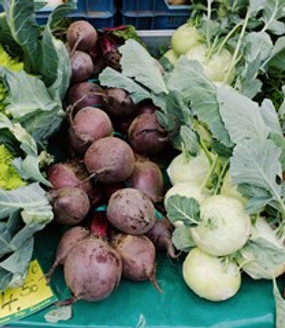
Eating Vegan and Staying Athletic – Don’t Sweat It!
June 21, 2021

Summer is here again, and after a year of restrictive lockdowns, we’re all keen to get out there and enjoy some fun activities. Whether you have competitive sports or simple healthy living in mind (side note: our popcorn is the perfect tag-along snack for both of these!), exercise is a key part of leading a healthy life. For most, the health benefits are some of the main reasons behind eating vegan. However, difficulties can arise in maintaining a plant-based diet while staying active. The specific and often subtle dietary needs required to make progress in one’s fitness goals can be alarming for many who seek to gather all their nutrition from plants. Fortunately, the nutrients necessary for superior performance can be found in all sorts of plant-based alternatives! We’ll discuss what holds some vegan athletes back and how, with a little bit of fine tuning, these problems can be alleviated entirely!
Calorie-light Living, a Double-edged Sword
Let’s get one thing out of the way: it’s not only possible to be vegan and athletic, but it can also be highly beneficial and improve your performance. The issue lies in finding the necessary nutrients. This is made somewhat more difficult by most fitness plans – as they depend on meat to supply these nutrients. This gives the impression that, to be a serious athlete, you can’t be vegan. This couldn't be further from the truth.
One of the biggest problems professional athletes face with fully plant-based diets is caloric intake. For example, the calorie count of a 100-gram beef steak is around five times that of the same amount of broccoli. The same trend of having a lower calorie density follows for most fruits and veggies. That can be an issue for people looking to make larger muscle gains or those who workout for longer sessions (more than 60-90 minutes). With all the meat substitute options on the market today, you can easily replace animal meat with the plant-based alternative. You’ll get the same nutrient dense benefits but with the benefits of half the calories and half the fat. Not only do you benefit from ingesting fewer calories, but the higher intake of fruits and veggies contain dietary fiber, keeping you fuller for longer.
A Nutrition Scavenger Hunt Made Easy
The second problem most vegan athletes face is gathering essential vitamins and minerals that are somewhat sparse in the vegetable world. In the past, this was a bigger issue – as a lack of availability of adequate plant-based options left many without a clear path towards vegan athleticism. Today, we benefit from a deeper understanding of what is needed to achieve superior performance. Here’s a breakdown of what experts say people aren’t getting enough of: protein, iron, zinc, calcium, omega-3 fatty acids, and vitamins D and B12.

Let’s take a look at protein first. Now you may be saying to yourself, “I already make sure I eat protein-rich plants,” and that’s commendable! There is a catch though. The proteins found in plants like beans and nuts are what is known as “incomplete”. Incomplete proteins lack key amino acids essential to protein synthesis in our own bodies, leading many to the conclusion plant-based protein is inferior in some way. A word to these people: you’re missing out! While it is true that you can’t expect adequate protein intake from say, beans, all on their own, that’s not a problem with the beans! Rather than depend on one source for all your proteinic needs, a diverse mix provides more than enough for your body. It’s why we at NU Food add pea protein to our popcorn — we want to make sure you’re getting protein where you can, when you can, even at snack time!
A notable exception to this rule is nutritional yeast, a queen among superfoods. Nutritional yeast has all the amino acids necessary for protein synthesis, making it a meat-free complete protein. It’s also a key ingredient that lends our Queso its flavor. You can learn more about it and nutritional yeast here.

Revelations about complete and incomplete proteins are going to be unsurprising to anyone who’s done a bit of research into the dietary aspect of veganism, but the theme of dietary diversity becomes incredibly relevant when paired with athleticism. The same principle of varying your foods can be applied to almost everything* on our aforementioned list:
-
Proteins: black beans, lentils, and quinoa
-
Iron: kale, chickpeas, and chia seeds
-
Zinc: spinach, green peas, and broccoli
-
Calcium: soybeans and figs
-
Omega-3: flax seeds, blueberries, and walnuts
-
Vitamin D: mushrooms and broccoli
Not only does this sound like a delicious spread, but when eaten in the correct quantities, it will fortify your body for any exercise you throw at it! As always, your personal dietary needs can only be determined by a certified dietician, so specific questions or concerns should be directed towards a professional.
So you see, for the traditional athlete’s diet, much of the focus is on cutting foods out and winding caloric intake back. Vegan athletes, however, get to enjoy a complete reversal of adding foods to their diet! If you find that yours is lacking, try any of the foods listed above— and in the spirit of trying new things, if you haven’t tried any or all of NU Food’s offerings, hop on over to our shop. Grab yourself a bag of crunchy, flavored popcorn or a jar of creamy, dairy-free queso!
*Unfortunately, vitamin B12 is the only nutrient on this list that cannot be found naturally in significant quantities outside of meat and dairy products. Most vegan companies will add B12 to their plant-based products to ensure you’re getting the nutrients you need.


